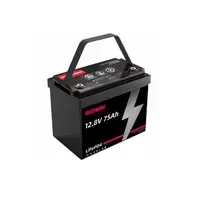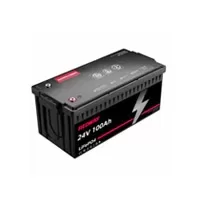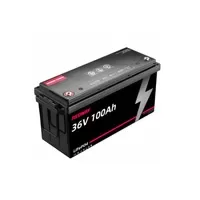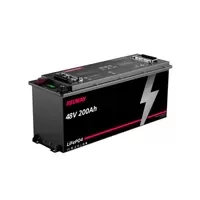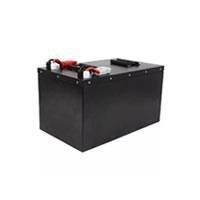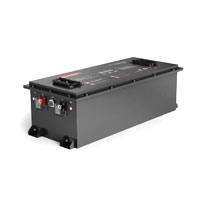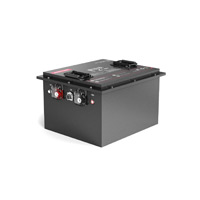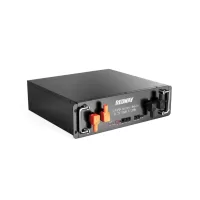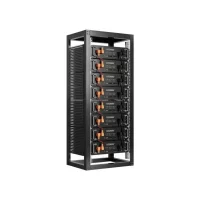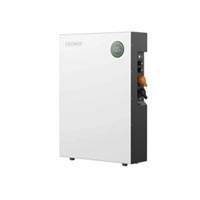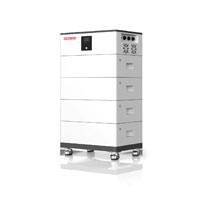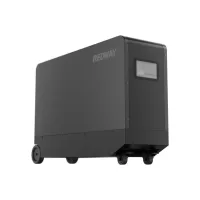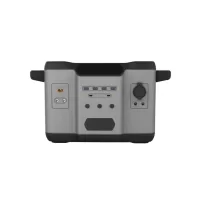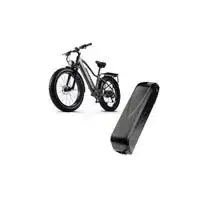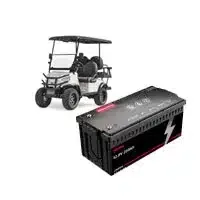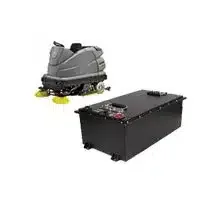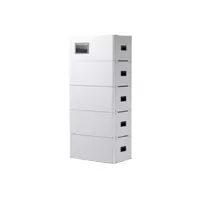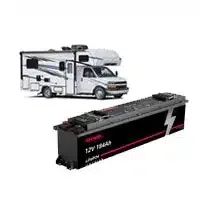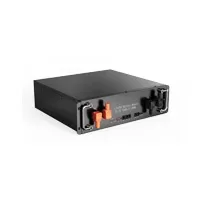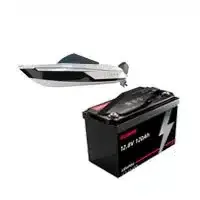(Click to Get a Quick Quote!)
In this must-read blog post, we delve into the crucial but often overlooked realm of storing lithium-ion batteries. Whether it’s your smartphone, laptop, or electric vehicle, understanding proper storage practices is key to extending battery life and ensuring peak performance. Let’s explore the essential guidelines for storing your lithium-ion batteries effectively!
The Importance of Proper Storage for Lithium-Ion Batteries
Proper storage is key for your lithium-ion batteries, ensuring longevity, safety, and reliable backup power. Let’s break down why it matters:
- Maximizing Lifespan: Storing batteries correctly helps maximize their lifespan by minimizing degradation and preserving their capacity over time.
- Ensuring Safety: Lithium-ion batteries can overheat or explode if mishandled. Storing them in a controlled environment mitigates these risks, prioritizing safety and preventing accidents.
- Reliable Backup Power: Good storage practices guarantee that your batteries function when needed, providing peace of mind in emergency situations or when having spare batteries on hand.
- Organization and Convenience: Proper storage allows for easy access and organization, saving time by avoiding the hassle of searching through cluttered spaces.
- Protecting Your Investment: Investing in high-quality lithium-ion batteries is a significant expense. Proper storage ensures you get the most value from your investment, protecting your financial commitment in these essential energy sources.
Factors that Affect Battery Longevity
Understanding the factors influencing lithium-ion battery longevity is crucial for optimal performance. Let’s explore key considerations:
- Temperature Impact: Extreme temperatures, whether too hot or too cold, accelerate degradation and reduce capacity. High temperatures can hasten wear, while extreme cold hampers chemical reactions, decreasing performance.
- Charging Habits: Overcharging or undercharging harms battery lifespan. Avoid prolonged charging once full, as it stresses cells, and prevent frequent complete discharges, which also negatively affects longevity.
- Charger Quality: The type of charger matters. Using non-specific or low-quality chargers can lead to improper charging cycles, potentially damaging battery cells and impacting overall lifespan.
- Proper Storage: Incorrect storage affects lifespan. Store batteries at room temperature, ideally between 40-60% charge, to prevent irreversible damage caused by high charges or prolonged discharges.
- Usage Patterns: How you use the battery matters. Repeated deep discharges or continuous heavy loads without adequate rest periods can significantly shorten the battery’s overall lifespan.
Implementing best practices in storage and usage based on these factors will effectively extend the life of your lithium-ion batteries.
Best Practices for Storage
Proper storage is crucial for the longevity and performance of lithium-ion batteries. Here are key best practices to keep in mind:
- Temperature Control: Store batteries in a cool, dry place away from direct sunlight or extreme heat sources to mitigate the impact of temperature on battery life.
- Charge Level Maintenance: Before storage, ensure batteries are at around 50% charge capacity to prevent over-discharge or overcharging, preserving their lifespan.
- Protective Packaging: Store loose batteries in individually wrapped or compartmentalized cases to prevent damage and ensure safe storage.
- Avoid Extreme Conditions: Keep batteries away from moisture, dust, and humidity, as exposure to these elements can damage lithium-ion batteries over time.
- Regular Monitoring: Periodically check stored batteries for signs of swelling, leakage, or damage, even when not in use, to address potential issues promptly.
By adhering to these best practices, you can significantly extend the lifespan and performance of your lithium-ion batteries, ensuring they are ready and safe for use whenever needed.
Common Mistakes to Avoid
Storing lithium-ion batteries requires attention to avoid common mistakes that can impact performance and lifespan. Let’s highlight these pitfalls:
- Temperature Extremes: Avoid exposing batteries to extreme temperatures, whether hot or freezing, as it can damage the battery and shorten its lifespan.
- Overcharging/Undercharging: Follow manufacturer guidelines to prevent overcharging or undercharging, as both practices can lead to decreased performance and capacity over time.
- Use Compatible Chargers: Using cheap or counterfeit chargers may seem cost-effective but can be harmful. Knock-off accessories may lack proper voltage regulation, causing overheating and battery damage.
- Regular Use Matters: Regularly use your devices instead of keeping them idle for extended periods. Contrary to the belief that sparing use extends lifespan, lithium-ion batteries benefit from consistent usage.
- Appropriate Charge Level for Storage: Store lithium-ion batteries at an appropriate charge level (around 50%) to prevent degradation. Storing them fully charged or completely drained for extended periods can impact performance over time.
By steering clear of these common mistakes and adhering to best practices, you’ll maximize the lifespan of your lithium-ion batteries, ensuring optimal performance over the long term.
Tips for Extending Battery Life
Extending the life of your lithium-ion battery is simple with these effective tips. Let’s break it down:
- Avoid Extreme Temperatures: Keep your battery away from extreme temperatures, as high heat accelerates degradation, and very cold temperatures reduce capacity temporarily.
- Charge Correctly: Ensure optimal performance by avoiding overcharging or fully draining the battery. Maintain the charge level between 20% and 80% whenever possible.
- Store at Partial Charge: For extended periods of non-use, store the battery at around 50% capacity, avoiding full charge or complete discharge.
- Regular Use and Recharge: Maximize battery lifespan by using and recharging regularly, preventing degradation that occurs when left idle for extended periods.
- Keep Clean & Dry: Efficient energy transfer is crucial, so periodically wipe down the battery and device contacts with a dry cloth to remove accumulated dirt or debris.
By incorporating these simple practices, you can effectively extend the life of your lithium-ion batteries, saving money on replacements and contributing to a greener environment by reducing electronic waste.
The Future of Lithium-Ion Battery Technology
The future of lithium-ion battery technology is full of exciting possibilities. Let’s explore key advancements shaping this future:
- Improved Energy Density: Researchers are working to increase the energy density of lithium-ion batteries, allowing for longer battery life in portable devices and extended driving ranges for electric vehicles.
- Enhanced Safety Features: Ongoing research aims to improve the safety features of lithium-ion batteries, minimizing risks like overheating and short circuits. New materials and designs are being developed to maintain high performance while ensuring safety.
- Exploration of Alternative Materials: Scientists are investigating alternative materials, such as solid-state electrolytes, to replace components in traditional batteries. This could lead to higher energy densities, improved thermal stability, and enhanced overall efficiency.
- Environmental Impact Reduction: Efforts are being made to reduce the environmental impact of lithium-ion battery manufacturing. This includes exploring sustainable alternatives like sodium-based chemistries and developing recycling methods to recover valuable metals from old batteries.
In conclusion, the future holds promising developments for lithium-ion battery technology, with advancements in energy density, safety, alternative materials, and sustainability practices. Expect even better-performing and environmentally friendly rechargeable power sources in the years ahead!
Related Posts
- Without driving, how long does a car battery last?
- Will solid-state batteries replace lithium?
- Why you shouldn’t charge your phone overnight?
- Why Use Lifepo4 Batteries In Stand Alone Solar System
- Why Upgrade to a 12v Lithium Ion Car Battery?
- Why Opt for 8D AGM Deep Cycle Batteries? Discover the Advantages.


